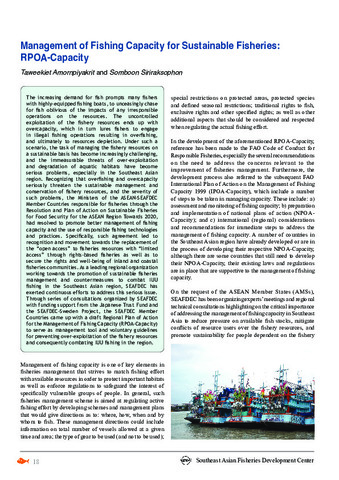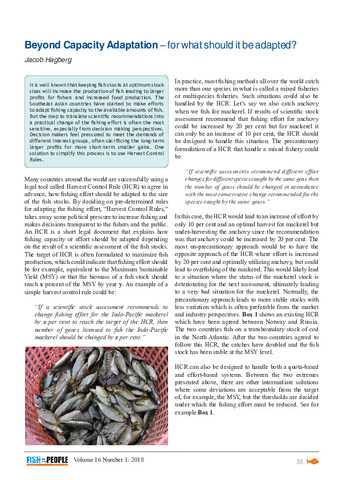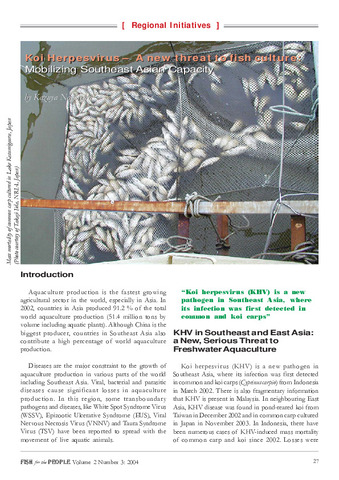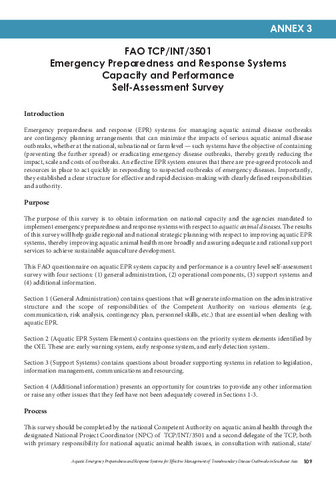| dc.description.abstract | The increasing demand for fish prompts many fishers with highly-equipped fishing boats, to unceasingly chase for fish oblivious of the impacts of any irresponsible operations on the resources. The uncontrolled exploitation of the fishery resources ends up with overcapacity, which in turn lures fishers to engage in illegal fishing operations resulting in overfishing, and ultimately to resources depletion. Under such a scenario, the task of managing the fishery resources on a sustainable basis has become increasingly challenging, and the immeasurable threats of over-exploitation and degradation of aquatic habitats have become serious problems, especially in the Southeast Asian region. Recognizing that overfishing and overcapacity seriously threaten the sustainable management and conservation of fishery resources, and the severity of such problems, the Ministers of the ASEAN-SEAFDEC Member Countries responsible for fisheries through the Resolution and Plan of Action on Sustainable Fisheries for Food Security for the ASEAN Region Towards 2020, had resolved to promote better management of fishing capacity and the use of responsible fishing technologies and practices. Specifically, such agreement led to recognition and movement towards the replacement of the 'open access' to fisheries resources with "limited access" through rights-based fisheries as well as to secure the rights and well-being of inland and coastal fisheries communities. As a leading regional organization working towards the promotion of sustainable fisheries management and countermeasures to combat IUU fishing in the Southeast Asian region, SEAFDEC has exerted continuous efforts to address this serious issue. Through series of consultations organized by SEAFDEC with funding support from the Japanese Trust Fund and the SEAFDEC-Sweden Project, the SEAFDEC Member Countries came up with a draft Regional Plan of Action for the Management of Fishing Capacity (RPOA-Capacity) to serve as management tool and voluntary guidelines for preventing over-exploitation of the fishery resources and consequently combating IUU fishing in the region. | en |




